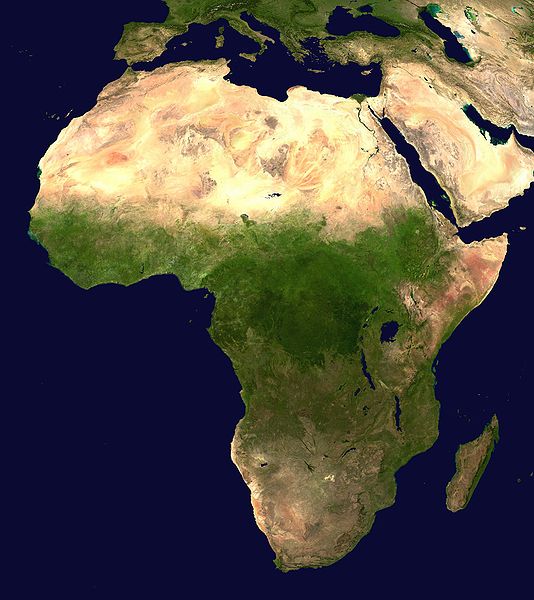
The Forgotten Partners of US Trade
 For trade geeks like me, twitter feeds are becoming ever more crowded with colorful rhetoric and heated conversations over possible transatlantic and transpacific trade agreements. But smothered by the TTP/TTIP talks is a US trade program many probably don’t even know exists. This is the African Growth and Opportunity Act (AGOA), a preferential trade program designed to promote trade and development in one of the most poverty-stricken regions of the world. It’s an imperfect program. Its benefit to the US economy is almost trivial. And it certainly isn’t a buzz word on the social media airwaves. But there is a catch: It’s immensely important for US national security.
For trade geeks like me, twitter feeds are becoming ever more crowded with colorful rhetoric and heated conversations over possible transatlantic and transpacific trade agreements. But smothered by the TTP/TTIP talks is a US trade program many probably don’t even know exists. This is the African Growth and Opportunity Act (AGOA), a preferential trade program designed to promote trade and development in one of the most poverty-stricken regions of the world. It’s an imperfect program. Its benefit to the US economy is almost trivial. And it certainly isn’t a buzz word on the social media airwaves. But there is a catch: It’s immensely important for US national security.
AGOA—unlike TTIP and TPP—is not a free trade agreement, but a nonreciprocal trade preference program that allows many least-developed countries (LDCs) to gain duty-free access to US markets without lowering their own import barriers. While it does not cover all LDC exports, AGOA has been remarkably wide in scope, extending tariff benefits even to apparel exporters that don’t use US fabric—a rare phenomenon for those familiar with the US yarn-forward rule. This has helped domestic industries such as in South Africa, Lesotho, and Kenya, boost their exports and economically diversify. Unfortunately for AGOA beneficiaries though, the program is due to expire in September, 2015.
So in a world drowning in an alphabet soup of trade agreements, why should Americans care if the sun sets on AGOA? You would have a hard time arguing AGOA is in the vital economic interest of the US. Though AGOA may have the potential to foster growing trade relations between the US and LDCs, AGOA countries still make up only a miniscule 2% of total US imports. While this little amount of trade is certainly beneficial for the much smaller statured economies of developing countries, it’s pretty negligible as far as the US economy goes.
But US interests in AGOA lie not in trade per se, but in formulating a prudent national security strategy. Promoting development through trade in AGOA countries can be an efficient way for eradicating anti-Americanism and terrorist safe havens before they even pop up. Not only has AGOA given citizens in LDCs new sources of income, but AGOA legislation has also set up trade capacity building (TCB) programs that provide AGOA members with technical assistance for promoting new economic projects and more sound governance. This means AGOA is an effective—even if unorthodox—weapon to facilitate economic growth and further US national security in an oft-neglected region.
To add is the fact that not extending AGOA would open up more doors for outside influence, particularly coming from energy-hungry China. Similar arguments have been given about TTIP/TPP, where many worry that the US role in the world economy would become marginalized if the agreements were to falter. And China’s strategy of late has not necessarily been “stability-stimulating” in Africa either. In fact, China’s go-to blueprint—whether in Sudan or Liberia—has been to gain access to foreign raw materials and energy resources by offering large sums of money, weapons, or both.
The sooner AGOA gets extended the better. This is because the closer AGOA comes to expiring, the more uncertainty that will be created in LDC business communities and the more quickly AGOA’s achievements will begin to unravel. Whitney Schneidman, fellow at Brookings’ Africa Growth Initiative in the Global Economy and Development program, writes:
“…it took Congress more than a year to extend AGOA’s third country fabric provision in 2012, a provision that had already been extended twice. While the provision was eventually extended, it happened at the 11th hour, leading to the cancellation of contracts and the loss of jobs in AGOA-eligible countries.”
One does not need to be a pure philanthropist to see that the death of AGOA will carry many costs with it. As pointed out, these costs go beyond just trade and will affect the US just as much as they affect the AGOA economies. Policy-makers would be wise then to assure TPP/TTIP doesn’t drown out the forgotten (but important) trade initiative that is AGOA.
Brendan Connell is a Research Assistant & Intern at the American Security Project covering American competitiveness and issues in trade.






[…] The Forgotten Partners of US Trade […]